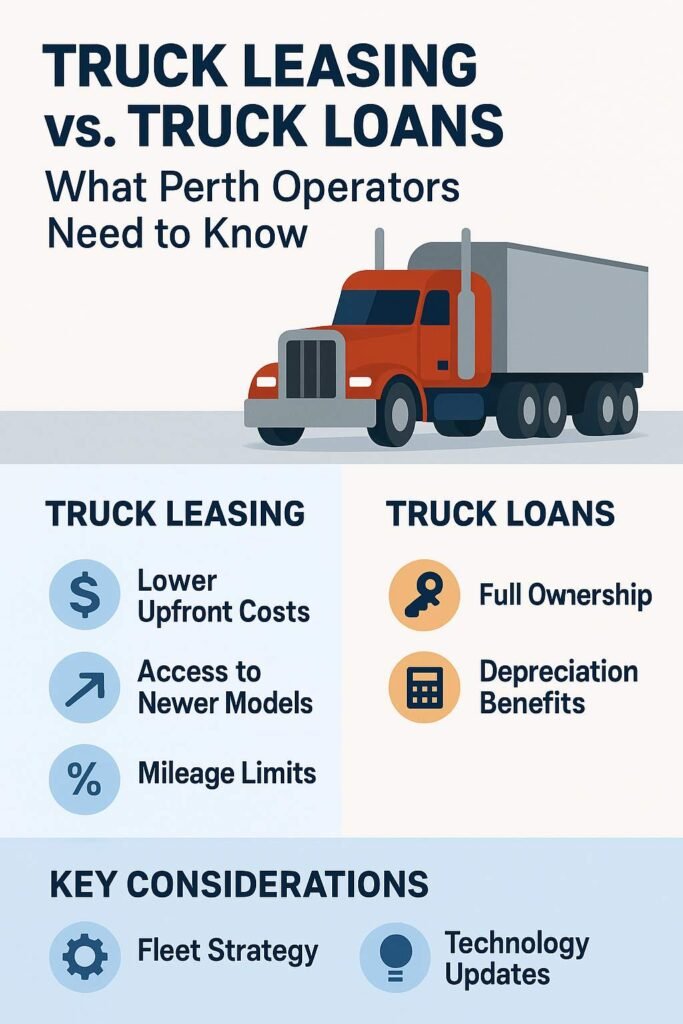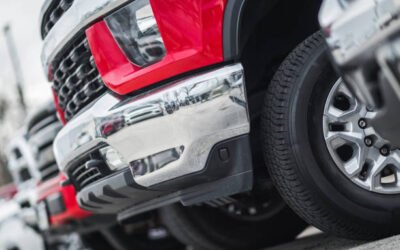For businesses in Perth’s transport and logistics sector, choosing between leasing and financing a truck is a key financial decision. Both options enable access to modern, reliable vehicles, but their long-term financial and operational impacts differ significantly. Understanding the distinctions helps operators align their choice with cash flow, tax planning, and fleet management goals.
Understanding Truck Leasing
Leasing allows operators to use vehicles without full ownership. Lease agreements typically involve fixed monthly payments over a set period, after which the vehicle is either returned, upgraded, or purchased at residual value.
Advantages of Truck Leasing:
- Lower upfront costs: No significant initial capital investment required.
- Improved cash flow: Fixed monthly payments simplify budgeting.
- Access to newer models: Easier upgrades to meet evolving compliance and efficiency standards.
- Tax benefits: Lease payments may be deductible as operating expenses.
However, leasing may have mileage limits and contractual obligations, and operators do not build equity in the vehicle.
Understanding Truck Loans
Truck financing enables ownership through regular installments over a fixed term. Once the loan is repaid, the vehicle becomes a business asset.
Advantages of Truck Loans:
- Full ownership: The asset remains with the business post-repayment.
- No usage restrictions: Ideal for operators with unpredictable workloads or high mileage.
- Depreciation benefits: Businesses can claim depreciation and interest deductions.
- Equity growth: Vehicles can be sold or traded later to recover value.
The main drawback is the higher initial cost and responsibility for maintenance and resale value.

Key Considerations for Perth Operators
When deciding between leasing and a loan, assess:
- Fleet strategy: Short-term leases may suit growing businesses, while long-term ownership favours stable fleets.
- Tax structure: Consult a qualified accountant to determine which option aligns with business tax obligations.
- Maintenance preferences: Leasing may include maintenance plans, while ownership requires direct management.
- Technology updates: Leasing provides flexibility to adopt newer, fuel-efficient or electric models faster.
Final Insights
Both leasing and financing can effectively support operational growth, but the right choice depends on financial goals and business stability. Operators seeking flexibility and minimal commitment often prefer leasing, while those focused on asset accumulation and control benefit from financing.
For expert advice tailored to your business needs, contact a trusted Truck Loan company Perth that understands the local market and can help structure competitive truck loans Perth solutions for your fleet.




0 Comments